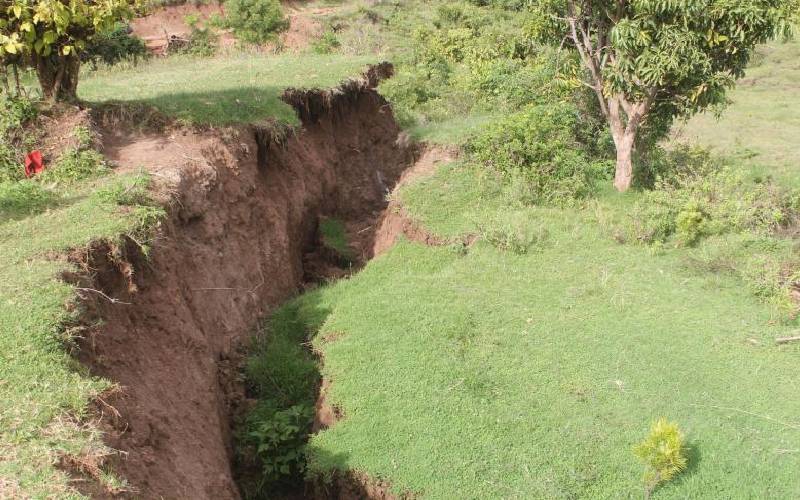×
The Standard e-Paper
Smart Minds Choose Us

A gaping crack on the slopes of Elgeyo escarpment. [Fred Kibor, Standard]
It will now be punishable to live, till, rear livestock or light fire on the Elgeyo escarpment after the county administration enacted a law that proscribes interfering with the fragile environment.